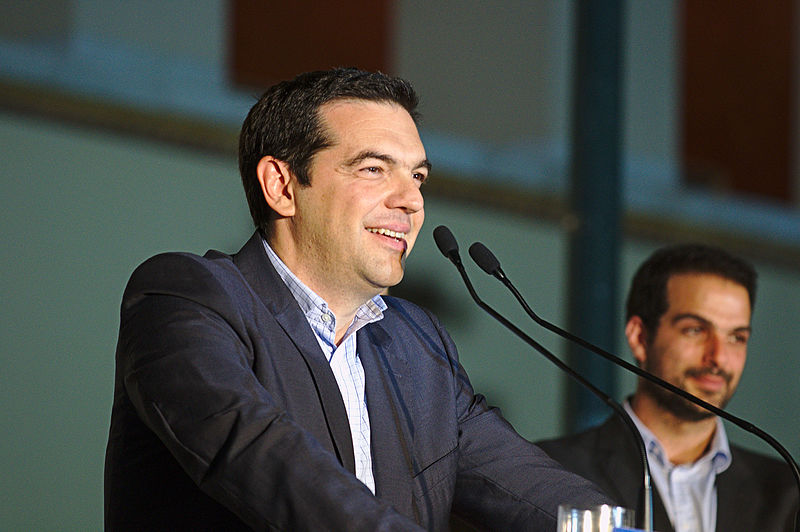The delegation of the European Commission, the European Central Bank (ECB), the Eurozone Rescue Fund and the International Monetary Fund (IMF) received a technical agreement from Greek officials at the end of Saturday. It is expected that the finance ministers of the Eurozone will approve the measures in Brussels on Monday.
"The visit of the representatives of the institutes is completed, we reached an agreement at the working level," Greek Finance Minister Euclid Tsakalotos told reporters. He added that the final review of the bailout will be completed in May or June, until the end of the program in August.
The measures that are part of the aid package of up to 86 billion euros are aimed at making the Greek economy, one of the least competitive in the euro area, more mobile.
For example, Athens agreed to sell 40% of its state-owned energy company and promised to reform its retail gas market. In addition, in the country where trade union protests regularly break out, the rules for strikes will be tightened.
Greece will also test some social benefits programs and will reform the provisions that deal with bankruptcy procedures and non-payment of loans. These measures should help Greek banks reduce their portfolios of "bad" debts.
For example, the establishment of procedures for holding auctions for the excluded collateral by Greek banks is a key condition for the release of the last tranche of funds for rescue.
Greek banks that have already accumulated bad debts by more than 100 billion euros are trying to sell about 18,000 real estate object in 2018. Regulators are forcing banks in the country to cut amount problem loans by 40% over the next two years.
The country that survived the crisis should finally return to growth this year after the Greek economy has been fighting with recession during the last decade. According to forecasts of Greece and Europe in 2017, the economy is expected to grow by 1.6% and by 2.5% in 2018.
It is currently expected that Greek lawmakers will approve a new pack of measures by early January. This will allow clearing the way for payment of the next tranche on January 22.
Unlike previous rescue consultations over the past few years, this round of talks has been smooth. The Greek government hopes that by quickly completing the review talks, it can accelerate negotiations on the timing of the exit from the eight-year rescue program and insist on negotiations on debt restructuring of about 319 billion euros.
If creditors determine that Greece can live without the means to save, the country will withdraw from the current round - the third bailout program from 2010 - in August 2018. To exit, Greece will have to be able to finance itself in international markets.
source: reuters.com
"The visit of the representatives of the institutes is completed, we reached an agreement at the working level," Greek Finance Minister Euclid Tsakalotos told reporters. He added that the final review of the bailout will be completed in May or June, until the end of the program in August.
The measures that are part of the aid package of up to 86 billion euros are aimed at making the Greek economy, one of the least competitive in the euro area, more mobile.
For example, Athens agreed to sell 40% of its state-owned energy company and promised to reform its retail gas market. In addition, in the country where trade union protests regularly break out, the rules for strikes will be tightened.
Greece will also test some social benefits programs and will reform the provisions that deal with bankruptcy procedures and non-payment of loans. These measures should help Greek banks reduce their portfolios of "bad" debts.
For example, the establishment of procedures for holding auctions for the excluded collateral by Greek banks is a key condition for the release of the last tranche of funds for rescue.
Greek banks that have already accumulated bad debts by more than 100 billion euros are trying to sell about 18,000 real estate object in 2018. Regulators are forcing banks in the country to cut amount problem loans by 40% over the next two years.
The country that survived the crisis should finally return to growth this year after the Greek economy has been fighting with recession during the last decade. According to forecasts of Greece and Europe in 2017, the economy is expected to grow by 1.6% and by 2.5% in 2018.
It is currently expected that Greek lawmakers will approve a new pack of measures by early January. This will allow clearing the way for payment of the next tranche on January 22.
Unlike previous rescue consultations over the past few years, this round of talks has been smooth. The Greek government hopes that by quickly completing the review talks, it can accelerate negotiations on the timing of the exit from the eight-year rescue program and insist on negotiations on debt restructuring of about 319 billion euros.
If creditors determine that Greece can live without the means to save, the country will withdraw from the current round - the third bailout program from 2010 - in August 2018. To exit, Greece will have to be able to finance itself in international markets.
source: reuters.com





